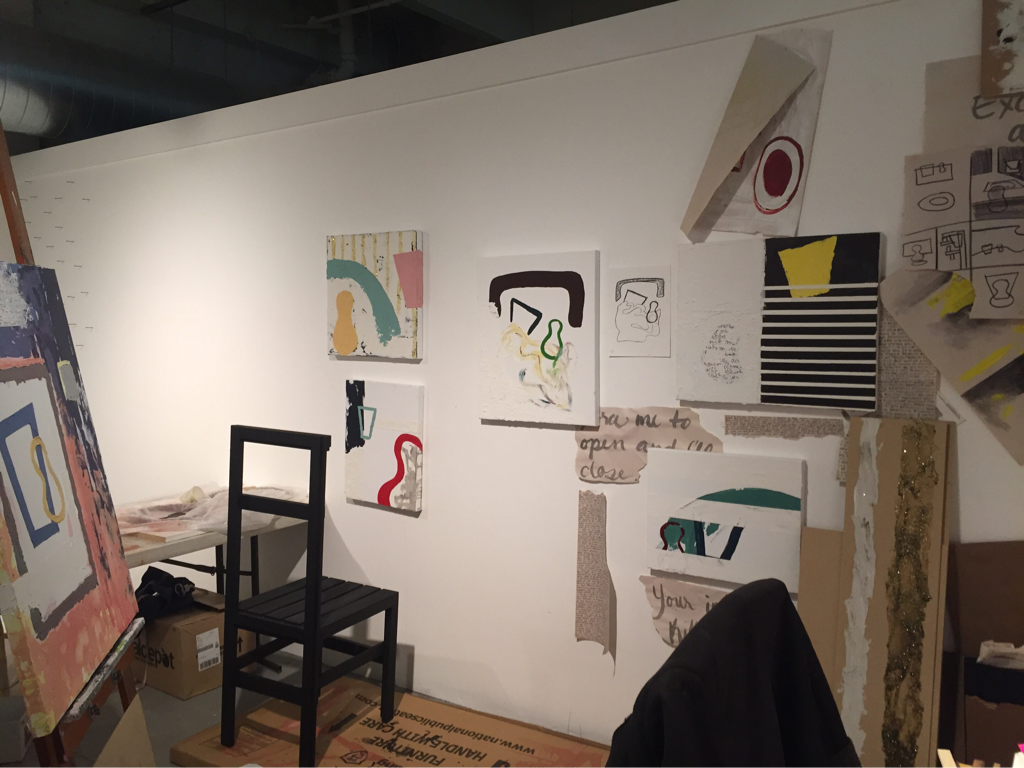One of my favorite explanations to date..."There was never a time when the world began, because it goes round and round like a circle, and there is no place on a circle where it begins. Look at my watch, which tells the time; it goes round, and so the world repeats itself again and again. But just as the hour-hand of the watch goes up to twelve and down to six, so, too, there is day and night, waking and sleeping, living and dying, summer and winter. You can't have any one of these without the other, because you wouldn't be able to know what black is unless you had seen it side-by-side with white, or white unless side-by-side with black. "In the same way, there are times when the world is, and times when it isn't, for if the world went on and on without rest for ever and ever, it would get horribly tired of itself. It comes and it goes. Now you see it; now you don't. So because it doesn't get tired of itself, it always comes back again after it disappears. It's like your breath: it goes in and out, in and out, and if you try to hold it in all the time you feel terrible. It's also like the game of hide-and-seek, because it's always fun to find new ways of hiding, and to seek for someone who doesn't always hide in the same place. "God also likes to play hide-and-seek, but because there is nothing outside God, he has no one but himself to play with. But he gets over this difficulty by pretending that he is not himself. This is his way of hiding from himself. He pretends that he is you and I and all the people in the world, all the animals, all the plants, all the rocks, and all the stars. In this way he has strange and wonderful adventures, some of which are terrible and frightening. But these are just like bad dreams, for when he wakes up they will disappear. "Now when God plays hide and pretends that he is you and I, he does it so well that it takes him a long time to remember where and how he hid himself. But that's the whole fun of it—just what he wanted to do. He doesn't want to find himself too quickly, for that would spoil the game. That is why it is so difficult for you and me to find out that we are God in disguise, pretending not to be himself. But when the game has gone on long enough, all of us will wake up, stop pretending, and remember that we are all one single Self—the God who is all that there is and who lives for ever and ever. "Of course, you must remember that God isn't shaped like a person. People have skins and there is always something outside our skins. If there weren't, we wouldn't know the difference between what is inside and outside our bodies. But God has no skin and no shape because there isn't any outside to him. [With a sufficiently intelligent child, I illustrate this with a Möbius strip—a ring of paper tape twisted once in such a way that it has only one side and one edge.] The inside and the outside of God are the same. And though I have been talking about God as 'he' and not 'she,' God isn't a man or a woman. I didn't say 'it' because we usually say 'it' for things that aren't alive. "God is the Self of the world, but you can't see God for the same reason that, without a mirror, you can't see your own eyes, and you certainly can't bite your own teeth or look inside your head. Your self is that cleverly hidden because it is God hiding. "You may ask why God sometimes hides in the form of horrible people, or pretends to be people who suffer great disease and pain. Remember, first, that he isn't really doing this to anyone but himself. Remember, too, that in almost all the stories you enjoy there have to be bad people as well as good people, for the thrill of the tale is to find out how the good people will get the better of the bad. It's the same as when we play cards. At the beginning of the game we shuffle them all into a mess, which is like the bad things in the world, but the point of the game is to put the mess into good order, and the one who does it best is the winner. Then we shuffle the cards once more and play again, and so it goes with the world." Watts, Alan. Excerpt from, "On the Taboo Against Knowing Who You Are"
0 Comments
It is easy to fall into the world of instantaneous information where we see one thing and, without hardly processing what it was, move onto the next thing. The most prominent example of this is social media platforms where we scroll from one image, video, story, to the next and never actually spend any time with anything. We are under the illusion that because the speed of information, the speed of life, is so fast that we can be more aware of the present moment and that we are living in the NOW. Are we, though?
Our attention spans have become limited to reading the first line and deciding that we know enough about the subject. Being that I am a student at a private art school five days a week and work at a gallery five days a week, I am exposed to a lot of art, art-making, and art people, so I will use this as an example: studies show the average time a person will spend looking at a piece of visual art is 15 to 30 seconds. Pieces of work that a person spent months, or years of their life to create and all we can give them from our attention span is 15 to 30 seconds. Are we so focused on trying to see and know as much as possible that we can’t spend more than 30 seconds with something? How often does the average person sit with themselves and think on their lives, their environment, their world, or their internal development? Of course, it is much easier in a moment of pause to take out your smartphone and browse social media aimlessly for 20 minutes than it would be for us to actually exercise our brains, or acknowledge that we have one. So here we are, completely obsessed with the present and simultaneously not noticing anything while becoming increasingly incapable of making decisions in our lives that would actually lead us towards contentment. We are constantly wanting the lives we don’t have and not noticing that we are already living the only life that we could ever be content with, it just takes us actually being present. Spending that time there is a silence in conversation to sit and be where we are instead of going onto our phones and pretending that we have working brains. Actually absorbing the art and culture around us in order to have a deeper and more meaningful experience of life. Yet, I ask myself this: The present is all good and so forth, but what about goals in life? Well, we certainly won’t be able to achieve our goals if we can’t kick ass in the present. Sometimes we have to survive through difficult decisions in order to achieve contentment. I have spent the last three years trying to ignore the fact that I want to be somewhere else with other people. But, I have forced myself to stick with my gut and my original decision to be on my own and figure out how the world works so that I can support myself and my passions AND be where I want to be. That is the long-game sacrifice I made for my own betterment and contentment. In order to reach the larger goal, however, I have to pay close attention to how I am leading my life on a moment-to-moment basis. Being frustrated or depressed by my living situation or the people I am not surrounded by does not make getting where I want to be any easier. Trust me, I try this on a weekly basis. What does help is actually immersing myself into the culture and energy of what is happening around me. Spending more than 30 seconds to look at a piece of art. Reading the whole article and then several follow-up articles instead of the headline. No more headliners. Pay attention and experience your life. |
Archives
March 2020
Categories
All
|






